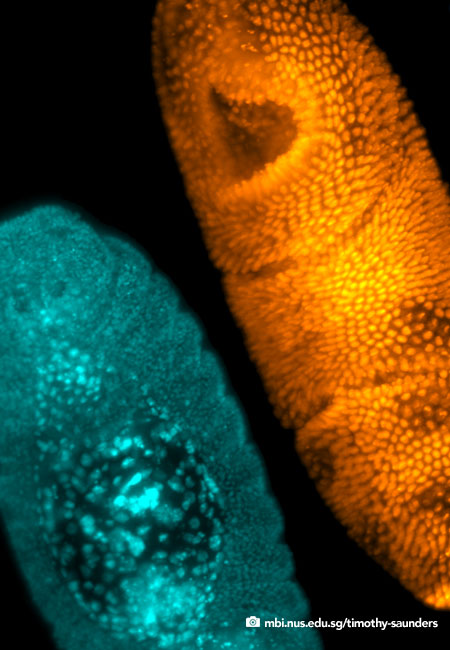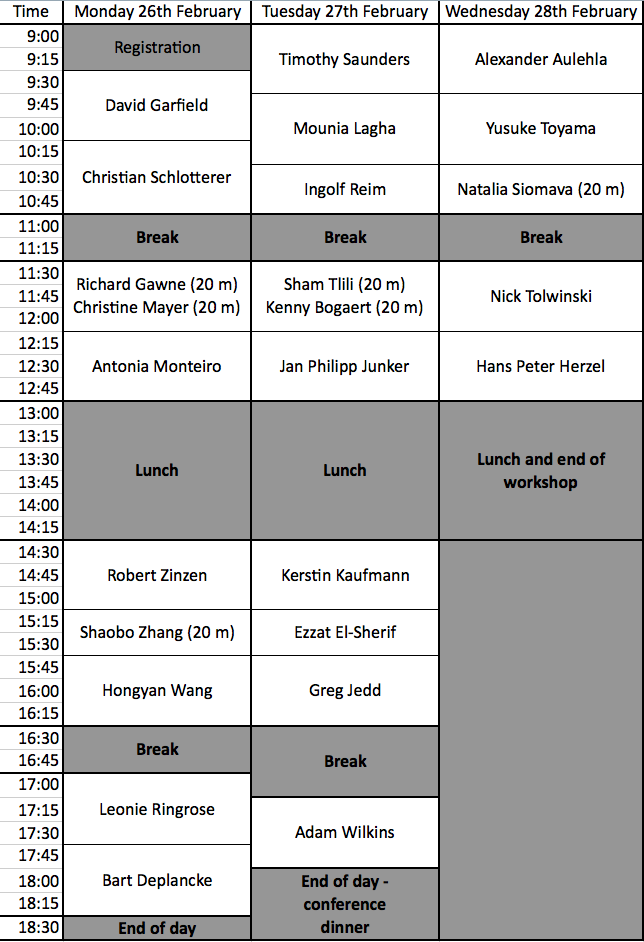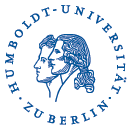Joint NUS-HU Workshop on Patterning and Timing in Development and Evolution
The workshop is free and open to all interested researchers.
Embryonic development represents a balancing act between robustness and evolvability. For individual organisms, developmental processes must be robust to environmental fluctuations and the influence of segregating mutations. But at the same time, development must be able to evolve if populations are to adapt. Understanding this interplay requires the integration of genetic and evolutionary approaches, a physical understanding of how the embryo develops, and modern methods for assessing developmental phenotypes (from developmental rate to embryonic shape to developmental gene expression profiles).
Recently, there has been increasing interest in the importance of temporal regulation during development. How such temporal regulation emerged and how it is controlled at a molecular level are still poorly understood. We aim to bring together a broad range of research interests – from evolution to timing to cell biology – to build potential collaborations to tackle this intriguing problem.
Dates: 26th-28th of February 2018
Where: IRI Life Sciences at Humboldt University, Berlin

Schedule
Invited Speakers
The organizers are honored to welcome the following invited speakers to present at the Joint NUS-HU Workshop on Patterning and Timing in Development and Evolution. The workshop is free and open to all interested researchers.
| National University of Singapore | |
| Gregory Jedd | Temasek Lifesciences Laboratory |
| Antonia Monteiro | NUS |
| Nick Tolwinski | Yale-NUS College |
| Hongyan Wang | Duke-NUS |
| Yusuke Toyama | Mechanobiology Institute, NUS (MBI) |
| Humboldt University, Berlin | |
| Hans Peter Herzel | Institute for Theoretical Biology |
| Kerstin Kaufmann | Institute for Biology |
| Jan Philipp Junker | Max Delbruck Center for Molecular Medicine |
| Leonie Ringrose | IRI Life Sciences |
| Robert Zinzen | Max Delbruck Center for Molecular Medicine |
| Other Invited Speakers | |
| Alexander Aulehla | European Molecular Biology Laboratory (EMBL) |
| Bart Deplancke | Swiss Federal Institute of Technology Lausanne (EPFL) |
| Mounia Lagha | Institut Génétique Molécuaire Montpellier |
| Christian Schlötterer | University of Veterinary Medicine, Vienna |
Registration
Registration in the Joint NUS-HU Workshop on Patterning and Timing in Development and Evolution is free and open to all interested researchers. To apply for a space please contact Timothy Saunders, Assistant Professor, Mechanobiology Institute. We must receive your registration request by 8th January, 2018.
There will be opportunities for attendees to present their work. If you wish to give a talk, please provide an abstract (<300 words) to Timothy Saunders by the above deadline.
Accommodation
Nearby Hotels
Hotel Berlin Mitte by Campanile, Invalidenstr. 98, 10115
www.nordic-hotels.com/hotels/hotel-berlin-mitte-by-campanile-frueher-nordic/
Calma Berlin Mitte, Linienstr. 139-140, 10115
lindemannhotels.de/hotel-berlin/calma-berlin-mitte/
Generator, Oranienburger Strasse 65, 10117
generatorhostels.com/destinations/berlin/mitte
MEININGER Hotel Berlin Mitte “Humboldthaus” Oranienburger Straße 67/68, 10117 Berlin
www.meininger-hotels.com/en/hotels/berlin/center/
Organizers
Timothy Saunders, Assistant Professor, Mechanobiology Institute, National University of Singapore
David Garfield, Independent Junior Group Leader, IRI Life Sciences, Department of Biology, Humboldt-Universität, Berlin
The Joint NUS-HU Workshop on Patterning and Timing in Development and Evolution will be held on the campus of Humboldt University, Berlin, Germany.
Location
The Bernhard von Langenbeck Room
Langenbeck-Virchow Haus
Luisenstrasse 58/59
Berlin, Germany
About IRI Life Sciences
Founded in 2013, the Integrative Research Institute of Life Sciences (IRI Life Sciences) is a unique collaboration between three research institutions: the Humboldt-Universität zu Berlin (HU), the Charité – Universitätsmedizin Berlin and the Max-Delbrück-Center (MDC) for Molecular Medicine.
The IRI Life Sciences is an initiative to pool resources and to pursue interdisciplinary research in the life sciences. Research at the IRI Life Sciences bridges theoretical and quantitative experimental approaches across multiple scales of biology, ranging from the molecular to the systems-biological level.
Supported by
Humboldt University and NUS are connected through several strong and long existing cooperations between researchers in various disciplines. Similarities between both universities in structure, size and research focus offer many opportunities for further research collaborations.
Both universities commit resources to take existing ties and cooperative projects to a next level as well as to encompass additional disciplinary areas and types of activity. Each university contributes 150,000 EUR per year to a budget that is dedicated to supporting activities within the partnership. Learn more
© Joint NUS-HU Workshop on Patterning and Timing in Development and Evolution






